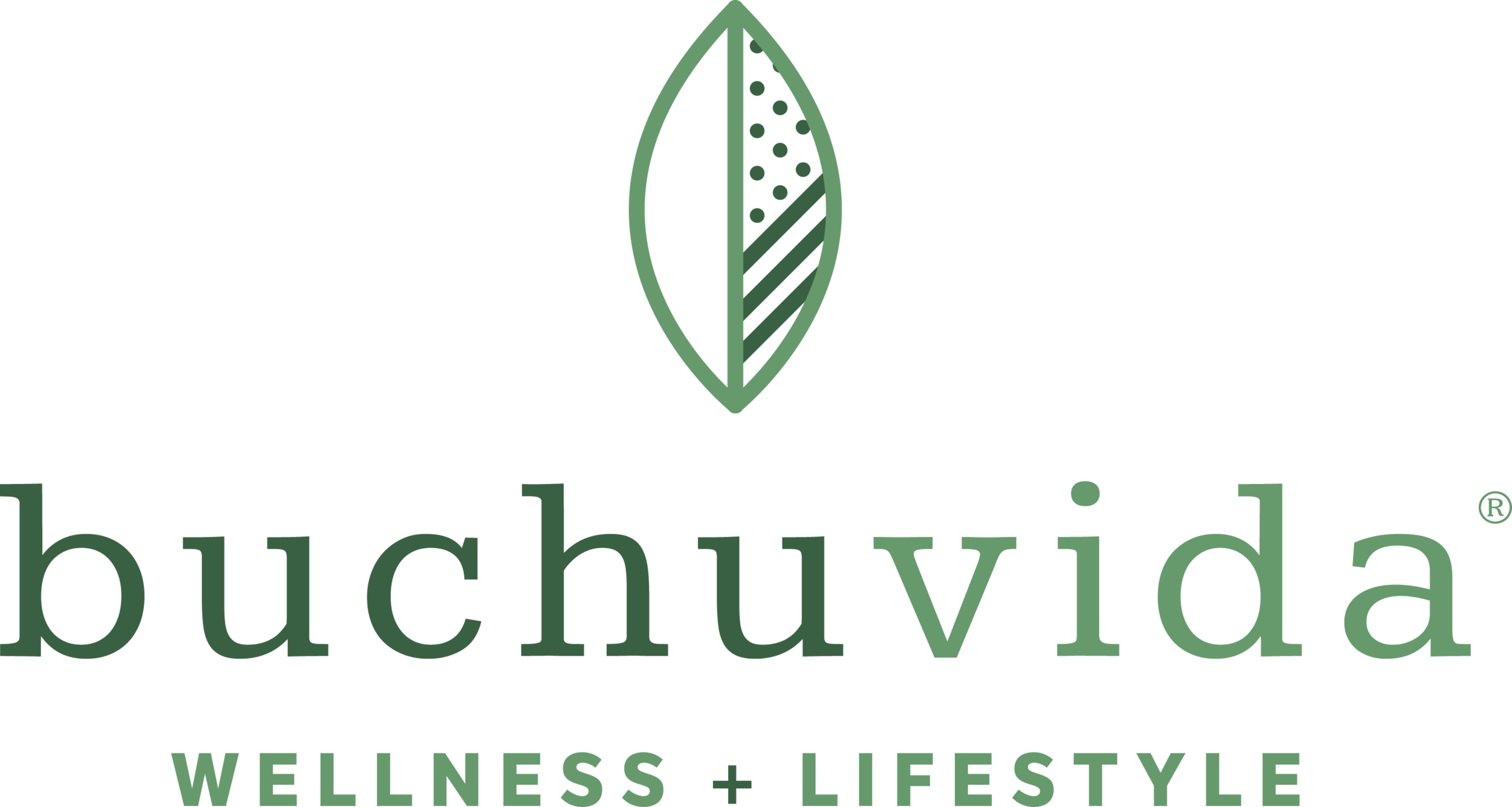Sulfates, Parabens and What They're Doing in Your Shampoo and Hair
Shampoo is an essential hair care product, and many people use it daily.
Modern shampoos contain various ingredients such as surfactants, vitamins, parabens, protein derivatives, silicones, natural-based plant extracts, and other 'active ingredients’ (Hössel, 2000).
But, are all these ingredients in conventional shampoos good for you?
According to Zirwas (2009), conventional shampoo’s use several allergens, including:
Fragrance,
Cocamidopropyl betaine,
Methylchloroisothiazolinone/methylisothiazolinone,
Formaldehyde releasers,
Propylene glycol,
Parabens,
Benzophenones,
Iodopropynyl butylcarbamate, and
Methyldibromo glutaronitrile/phenoxyethanol
Let’s explore two of the most potentially problematic ingredients in conventional shampoo (sulfates and parabens), and discuss how natural shampoos may be an effective solution.
What Are Sulfates?
Sulfates are a type of salt derived from sulfuric acid. They are used in shampoos and other personal care products because they act as effective detergents.
Sulfates can help create the lather and foam associated with cleaning products. Surfactants are used in soaps and shampoos at concentrations between 0.1%-29% (Fiume et al., 2010). They break down dirt, oils, and other components that build up on the scalp and hair.
Sulfates are effective at cleaning hair, but they can also strip away natural oils that help keep it healthy and hydrated.
What Is Sulfate-Free Shampoo?
Sulfate-free shampoos remove oils and dirt from the hair and scalp without using harsh sulfates.
These specialized shampoos use more gentle and natural cleansers, making sulfate-free shampoo an excellent choice for people with sensitive skin or allergies.
Sulfate-free shampoos help maintain colour-treated, straightened, or styled hair. Harsh detergents can compromise such hair treatments.
For dry hair, sulfate-free shampoos can help add moisture and strength without chemicals.
When shopping for a sulfate-free shampoo, look for two key ingredients - aloe vera and natural fruit enzymes. Both of these ingredients help reduce irritation and cleanse the hair and scalp.
Is Sulfate-Free Shampoo Better?
Trying out a sulfate-free shampoo can be a great way to improve your hair and scalp health.
Making the switch to sulfate-free shampoo is becoming popular. More people realize that doing so can offer many benefits.
For example, sulfate-free shampoos do not strip away natural hair oils while cleaning (unlike traditional shampoos). This results in less breakage and healthier-looking hair over time.
Sulfate-free shampoos are also much better for sensitive scalps; they can improve scalp health without adding overbearing fragrances or harsh chemicals.
How To Tell If Shampoo Is Sulfate-Free
Look at the ingredient list on the label of the shampoo bottle to check if your shampoo is sulfate-free
It isn't sulfate-free if it contains:
Sodium laureth sulfate,
Ammonium laureth sulfate, or
Ammonium lauryl sulfate.
Some shampoos claim to be "sulfate-free" but contain other chemicals from these detergents. So, it is important to read all the ingredients.
If unsure, research online or consult a professional for more accurate information.
What Are Parabens?
Common paraben structure.
Parabens have been widely used as preservatives in cosmetics, food, and pharmaceuticals for over 70 years (Fransway et al., 2019). They are a preservative used in shampoos, lotions, creams, makeup, and more. They prevent the growth of bacteria and mold.
Parabens have been used in personal care products for decades. Yet some people are concerned about long-term use of parabens, believing the compound may be linked to cancer and other health issues.
The human body easily absorbs parabens, a group of endocrine-disrupting chemicals (EDCs) (Nowak, 2018). EDCs may cause infertility and hormone-sensitive cancers in women and men, and other problems (Yilmaz, 2019).
For this reason, many people are opting for paraben-free and sulfate-free shampoos.
What Is Paraben-Free Shampoo?
Unlike conventional shampoos, paraben-free products do not contain preservatives. This helps consumers avoid health concerns of parabens' potential hormone-disrupting capabilities.
Paraben-free shampoos rely on natural ingredients (e.g., rosemary, grape seed extract) to fight bacteria growth (Badia, 2019).
Many paraben-free shampoos also offer benefits beyond the absence of harmful additives. For example, some natural shampoos use special organic oils, promoting smoother, softer hair.
Are Paraben-Free Shampoos Better?
Paraben-free shampoos are gaining more attention as the general public learns about the potential health risks associated with parabens.
Some research suggests these chemicals can disrupt hormones and increase the risk of certain cancers (Hager, 2022).
Choosing a paraben-free shampoo may be ideal for those worried about potential health impacts.
People should research and choose what's right for them.
How To Tell If A Shampoo Is Paraben-Free
You can take several key steps to discover if their shampoo is paraben-free.
Check the labels. Parabens may lurk under the guise of other names like alkyl- or alkyl benzoates.
Consider where you shop. Many stores (such as BuchuVida) specialize in selling products with no parabens.
Use online resources. Some websites provide informational breakdowns of specific shampoo formulas. Such information can be useful if you want to learn more about individual ingredients.
With some research and sharp label reading, you can determine if a shampoo contains parabens.
What Is Natural Shampoo?
Natural shampoo is an excellent alternative to traditional, chemical-laden shampoos. Traditional shampoos can be harsh on the scalp and hair.
Natural shampoos contain gentle, plant-based cleansers. They are safe for all hair types and come in various scents. Natural shampoos are free of sulfates, parabens, artificial fragrances, colors, and preservatives.
Natural shampoo includes ingredients like:
Aloe vera,
Coconut milk,
Honey,
Argan oil, and
Essential oils.
These natural ingredients nourish the scalp and hair without stripping natural oils. They can create a luxurious lather while being gentle enough for daily use.
Natural shampoos can also be beneficial if you have sensitive skin or allergies irritated by traditional shampoos.
Natural shampoos often contain vitamins and minerals that aid in maintaining healthy hair.
Vitamin E has antioxidant benefits. It helps protect against damage caused by the sun's UV rays.
Biotin helps to stimulate growth and strengthens weak strands (Patel et al., 2017).
Aloe vera is known for its anti-inflammatory properties, which soothe the scalp.
Essential oils promote relaxation (e.g., lavender) or refreshment (e.g., mint).
Natural shampoos help cleanse your scalp and hair without compromising effectiveness or safety. They provide the same cleansing power as traditional shampoos, with fewer harsh chemicals.
BuchuVida's natural shampoo could be what you need if you're looking for an effective natural shampoo!
What Are The Benefits Of Natural Shampoo?
Provides nourishment without stripping away natural oils. It's typically made with gentle natural ingredients (e.g., aloe vera, coconut milk, honey, argan oil, and essential oils).
Often contains vitamins and minerals, helping promote healthy hair. For example, biotin can stimulate hair growth.
No harsh chemicals (e.g., sulfates or parabens) to irritate the skin.
An excellent choice for sensitive skin or allergies irritated by traditional shampoos. Natural shampoos also don't contain artificial fragrances, colors, or preservatives.
Natural shampoos are eco-friendly. They don't contain harsh chemicals or artificial ingredients that can harm the environment.
Gentle properties make natural shampoo suitable for daily use. They still provide a luxurious lather when washing hair.
Aloe vera's anti-inflammatory properties (Balan, 2014) can soothe the scalp. It may also strengthen hair and promote growth.
Essential oils used in natural shampoos can provide an aromatherapeutic effect. Such scents (e.g., lavender) can promote relaxation.
It can help provide extra moisture to protect against dryness.
Natural shampoos are often affordable alternatives compared to their regular counterparts.
-
Badia, V., de Oliveira, M. S., Polmann, G., Milkievicz, T., Galvão, A. C., & da Silva Robazza, W. (2019). Effect of the addition of antimicrobial oregano (Origanum vulgare) and Rosemary (rosmarinus officinalis) essential oils on lactic acid bacteria growth in refrigerated vacuum-packed Tuscan sausage. Brazilian Journal of Microbiology, 51(1), 289–301. https://doi.org/10.1007/s42770-019-00146-7
Bałan, B. J., Niemcewicz, M., Kocik, J., Jung, L., Skopińska-Różewska, E., & Skopiński, P. (2014). Experimental immunology oral administration of aloe vera gel, anti-microbial and anti-inflammatory herbal remedy, stimulates cell-mediated immunity and antibody production in a mouse model. Central European Journal of Immunology, 2, 125–130. https://doi.org/10.5114/ceji.2014.43711
Fiume, M., Bergfeld, W. F., Belsito, D. V., Klaassen, C. D., Marks, J. G., Shank, R. C., Slaga, T. J., Snyder, P. W., & Andersen, F. A. (2010). Final report on the safety assessment of sodium CETEARYL sulfate and related alkyl sulfates as used in cosmetics. International Journal of Toxicology, 29(3_suppl). https://doi.org/10.1177/1091581810364665
Fransway, A. F., Fransway, P. J., Belsito, D. V., Warshaw, E. M., Sasseville, D., Fowler, J. F., DeKoven, J. G., Pratt, M. D., Maibach, H. I., Taylor, J. S., Marks, J. G., Mathias, C. G., DeLeo, V. A., Zirwas, J. M., Zug, K. A., Atwater, A. R., Silverberg, J., & Reeder, M. J. (2019). Parabens. Dermatitis, 30(1), 3–31. https://doi.org/10.1097/der.0000000000000429
Hager, E., Chen, J., & Zhao, L. (2022). Minireview: Parabens exposure and breast cancer. International Journal of Environmental Research and Public Health, 19(3), 1873. https://doi.org/10.3390/ijerph19031873
Hössel, Dieing, Nörenberg, Pfau, & Sander. (2000). Conditioning polymers in today’s shampoo formulations - efficacy, mechanism and test methods. International Journal of Cosmetic Science, 22(1), 1–10. https://doi.org/10.1046/j.1467-2494.2000.00003.x
Nowak, K., Ratajczak–Wrona, W., Górska, M., & Jabłońska, E. (2018). Parabens and their effects on the endocrine system. Molecular and Cellular Endocrinology, 474, 238–251. https://doi.org/10.1016/j.mce.2018.03.014
Patel, D. P., Swink, S. M., & Castelo-Soccio, L. (2017). A review of the use of biotin for hair loss. Skin Appendage Disorders, 3(3), 166–169. https://doi.org/10.1159/000462981
Yilmaz, B., Terekeci, H., Sandal, S., & Kelestimur, F. (2019). Endocrine disrupting chemicals: Exposure, effects on human health, mechanism of action, models for testing and strategies for prevention. Reviews in Endocrine and Metabolic Disorders, 21(1), 127–147. https://doi.org/10.1007/s11154-019-09521-z
Zirwas, M., & Moennich, J. (2009). Shampoos. Dermatitis, 20(2), 106–110. https://doi.org/10.2310/6620.2008.08041
CONDITIONS OF USE AND IMPORTANT INFORMATION: This information is meant to supplement, not replace advice from your doctor or healthcare provider and is not meant to cover all possible uses, precautions, interactions or adverse effects. These statements have not been evaluated by the FDA and are not intended to diagnose, cure, treat or prevent disease. Individual results may vary, and before using any supplements, it is always advisable to consult with your own healthcare provider.

